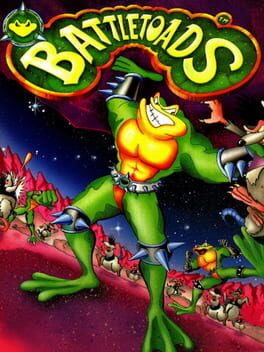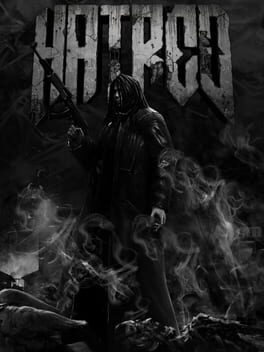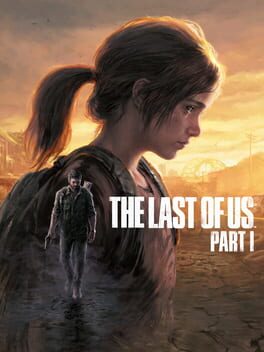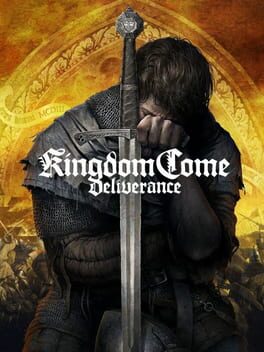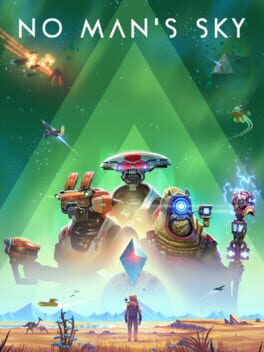GabrielShigueo
15 reviews liked by GabrielShigueo
Battletoads
1991
The final stretch of Dark Souls II is so effective from the perspective of storytelling, that I regret not documenting my earlier frustrations in better detail. True, even doing so I would have very little to contribute beyond the laundry list of complaints already shared by anyone who remembers the game: enemy and level designs are squat and very Maximo: Ghosts to Glory, the combat is as loose and weightless as an N64 Zelda title (but it expects a Bloodborne-like performance from you), the success of Demon's and Dark Souls gives it free license for scattershot cruelty, the total openness combined with fragmented levels (and uneven difficulties within) and steep punishment for failure has it even more bewildering than the first time you started up Demon's Souls; a problem ironed out by its follow up. But then, and here's the thing, acknowledging that last point is the first step in appreciating a future where these things continued to push for total emotional/physical/ludic bewilderment over what became across Bloodborne, Dark Souls 3, and Sekiro, progressively fine-tuned to tight, reactive play and linear progression. My preference is still with the proprioceptive rhythms of the other games, but the other games have never highlighted such an agonising disconnect between body and mind as Dark Souls II. Quite the opposite: for all they speak of corrupted flesh and the curse of undeath, they give way to the catharsis of the agile, the dynamic, the mastery of limbs and speed. The cosmic fatalism of their narratives is known but never known, in the posture, in the madness, in the burden of having to try for thankless and indeterminate progress, which is certainly not a criticism, but it's also not the only way to do things. Dark Souls II is less preoccupied with suggesting a shadowy cosmology than with the way it might register in dreams and memories — death is not tied to any greater philosophical purpose than going back to sleep, so you don't have to hurt any more. And this is where the final stretch of the game is so effective: what was so bewilderingly open finds itself inexorably within in the pull of thanatos, what was frustrating finds itself a sense of purpose in the game's guide, appearing intermittently to say only I'm sorry, I'm sorry you're here.
Signalis
2022
Better remake than several of the contemporaries, basically because it is a remix that assimilates the false -or more widespread- history of "survival Horror" (the genre names are a bit silly) that the magazines sold us here in the West batter than the last "new" games of the last few years. Think of essential pillar works of the horror aesthetic in gaming And you probably don't think of Laplace No Ma or Twilight Syndrome, god, names like Sweet Home, Clock Tower and contemporaries are probably starting to sound, but surely most say Alone in the Dark and already jumps into the golden era of Resident Evil, Silent Hill, White Day, Project Zero and all that.
It is natural, understandable due to the lack of a consistent canon in gaming, incapable of being properly created even in the puberty of a medium that is forced to a maturity that it could already reach (in fact it has already touched it).
Advertising and the Ludic factor have screwed up video games in many ways, but the worst is that accidental and unavoidable ignorance due to the lack I mentioned of a properly documented historical canon leads to constant redundancy in design planning and game direction. many "new" games. And it's not that I care too much about this lack of originality, this redundancy, nah, there are pre-rendered games with landscape Screen Orientation where the only thing you do is walk that take my breath away more than any "mechanical revolution" a-la Mario64. I don't think that quality is measured by originality, besides, bro, literally less than 50% of the mechanics that exist or were today are used expressively, almost everything is immediate gratification, fast food style.
We need more Historians in gaming, ASAP.
The adorable and beautiful thing about experiencing first works and recognizing influences on new authors is lost when they approach aesthetics with structures as closed as "classic survival horror", which always seems to result in the same sagas, with the same redundancy as I write these thoughts.
Well this brings us to Signalis. I recently came across a video on Youtube titled: SIGNALIS THE NEW FACE OF MODERN SURVIVAL HORROR
or something like that.
Modern? What ? in what sense? It is a remix of the supposed pillars of survival horror; RE structure, evocative images a la Silent Hill, hand holding sections in the first person, like horror graphic adventures or something from the golden era like White day. A Sci fi setting.
Martian Gothic.
DeadSpace.
Bro. Perhaps the only modern thing is the second round that works as a continuation and begins to suggest ideas about cycles and emotional attachment. But even in that I recognize other works.
It's not a bad thing as such. Remake and give your take, your version. I prefer it a thousand times to any remake of Vicarious Visions or BluePoint (May Arceus punish the shareholder meetings as they deserve) but Regardless of the intrinsic quality of SIGNALIS, you can see where it comes from and how little it can actually offer beyond entertaining hours: the product.
It is natural, understandable due to the lack of a consistent canon in gaming, incapable of being properly created even in the puberty of a medium that is forced to a maturity that it could already reach (in fact it has already touched it).
Advertising and the Ludic factor have screwed up video games in many ways, but the worst is that accidental and unavoidable ignorance due to the lack I mentioned of a properly documented historical canon leads to constant redundancy in design planning and game direction. many "new" games. And it's not that I care too much about this lack of originality, this redundancy, nah, there are pre-rendered games with landscape Screen Orientation where the only thing you do is walk that take my breath away more than any "mechanical revolution" a-la Mario64. I don't think that quality is measured by originality, besides, bro, literally less than 50% of the mechanics that exist or were today are used expressively, almost everything is immediate gratification, fast food style.
We need more Historians in gaming, ASAP.
The adorable and beautiful thing about experiencing first works and recognizing influences on new authors is lost when they approach aesthetics with structures as closed as "classic survival horror", which always seems to result in the same sagas, with the same redundancy as I write these thoughts.
Well this brings us to Signalis. I recently came across a video on Youtube titled: SIGNALIS THE NEW FACE OF MODERN SURVIVAL HORROR
or something like that.
Modern? What ? in what sense? It is a remix of the supposed pillars of survival horror; RE structure, evocative images a la Silent Hill, hand holding sections in the first person, like horror graphic adventures or something from the golden era like White day. A Sci fi setting.
Martian Gothic.
DeadSpace.
Bro. Perhaps the only modern thing is the second round that works as a continuation and begins to suggest ideas about cycles and emotional attachment. But even in that I recognize other works.
It's not a bad thing as such. Remake and give your take, your version. I prefer it a thousand times to any remake of Vicarious Visions or BluePoint (May Arceus punish the shareholder meetings as they deserve) but Regardless of the intrinsic quality of SIGNALIS, you can see where it comes from and how little it can actually offer beyond entertaining hours: the product.
Hatred
2015
A thought that has entered my head.
I don't know the state of "wholesome" in video games, but from what little I got into it, for me most opinologists failed at the point that they pointed to gamified mundane activities (of which I am a moderate fan) as a response to violence, being in reality many of these activities, such as fishing or cutting down trees, could be interpreted as a form of ecological violence without
"Enemies". This is how they usually present the digital entities that we face. But we are not "enemies" in games that do not contextualize terraforming or indiscriminate exploitation of resources? Bending the Minecraft and Animal Crossing regions is fine, but the Hatred neighborhood is wrong?
Video games separate people, individuals.
I am more inclined towards the creation or presentation of physical conflict through sports, preferably fictitious, but hey.
Video game creators shouldn't fear violence. Its exploration in fictional contexts is important, in all its facets and perspectives, and few media are better than the video game to do so. It doesn't matter if they are explorations of violence and recreation of conflict in a loop like in the Taroverse, or action works that explore identity and personal emptiness through stylization and hunting as a way of life, like Itsuno's Devil May Cry .
Hatred and the original Postal do their thing in a not so different way because they are a kind of horror games that do not deal with the subject of violence in a standard way, they do not offer the stereotypical heroic fantasy or resemble the examples of before, no evocative, but they are honest, they present violence as a grotesque activity in a neighborhood with a Dollhouse aesthetic (also Nier Repliant did) and they expose something that, although it needs an appropriate and convincing contextualization, is very real: violence is something easy to exercise , in almost all its forms, and in video games it's something we just do because it's satisfying. Already, there are a few pop video games that reflect on this (Taroverse, SpO: The line, Max Payne 3, bioshock...) but they usually need context or even a bait to bite so that we enter their conversation without feeling offended, for what? Why is MWII acceptable ("acceptable") until it puts us in terrorist control very explicitly? There was some controversy there, but not so much that in every TD game anyone can be a terrorist? Is it okay to play practically the same as Hatred in The Last of us part II just because that game has a -poor- excuse to contextualize scenes of extreme photorealistic ultragraphic violence? And come on, TLoU2 has no real intention of making us uncomfortable.
At least not much more than the intention of offering a satisfying time through fairly well-constructed action. But, again, Far Cry 3? 60% of the games? I don't know, a study on it would be interesting. As long as it doesn't have something like Under the skin as a scale for when you try to put the player in the skin of the antagonist or monster, but, hey.
-------------------------------------------------- -------------------------------------------------- -----
It's weird, this violence thing reminds me a bit of what was said about "this game makes you feel like batman/spiderman/superhero" and I was like: "Bro, almost all games make you feel like a superhero without a cape"
-------------------------------------------------- -------------------------------------------------- -----
__
KANE & LYNCH 2:
BEST GAME
WESTERN SPREADING CHAOS IN SHANGHAI, THE DIGITAL IMAGE PORTRAITS THE EAST AS A PLAYING FIELD. awful everything. play it
Arduween 1x09
I don't know the state of "wholesome" in video games, but from what little I got into it, for me most opinologists failed at the point that they pointed to gamified mundane activities (of which I am a moderate fan) as a response to violence, being in reality many of these activities, such as fishing or cutting down trees, could be interpreted as a form of ecological violence without
"Enemies". This is how they usually present the digital entities that we face. But we are not "enemies" in games that do not contextualize terraforming or indiscriminate exploitation of resources? Bending the Minecraft and Animal Crossing regions is fine, but the Hatred neighborhood is wrong?
Video games separate people, individuals.
I am more inclined towards the creation or presentation of physical conflict through sports, preferably fictitious, but hey.
Video game creators shouldn't fear violence. Its exploration in fictional contexts is important, in all its facets and perspectives, and few media are better than the video game to do so. It doesn't matter if they are explorations of violence and recreation of conflict in a loop like in the Taroverse, or action works that explore identity and personal emptiness through stylization and hunting as a way of life, like Itsuno's Devil May Cry .
Hatred and the original Postal do their thing in a not so different way because they are a kind of horror games that do not deal with the subject of violence in a standard way, they do not offer the stereotypical heroic fantasy or resemble the examples of before, no evocative, but they are honest, they present violence as a grotesque activity in a neighborhood with a Dollhouse aesthetic (also Nier Repliant did) and they expose something that, although it needs an appropriate and convincing contextualization, is very real: violence is something easy to exercise , in almost all its forms, and in video games it's something we just do because it's satisfying. Already, there are a few pop video games that reflect on this (Taroverse, SpO: The line, Max Payne 3, bioshock...) but they usually need context or even a bait to bite so that we enter their conversation without feeling offended, for what? Why is MWII acceptable ("acceptable") until it puts us in terrorist control very explicitly? There was some controversy there, but not so much that in every TD game anyone can be a terrorist? Is it okay to play practically the same as Hatred in The Last of us part II just because that game has a -poor- excuse to contextualize scenes of extreme photorealistic ultragraphic violence? And come on, TLoU2 has no real intention of making us uncomfortable.
At least not much more than the intention of offering a satisfying time through fairly well-constructed action. But, again, Far Cry 3? 60% of the games? I don't know, a study on it would be interesting. As long as it doesn't have something like Under the skin as a scale for when you try to put the player in the skin of the antagonist or monster, but, hey.
-------------------------------------------------- -------------------------------------------------- -----
It's weird, this violence thing reminds me a bit of what was said about "this game makes you feel like batman/spiderman/superhero" and I was like: "Bro, almost all games make you feel like a superhero without a cape"
-------------------------------------------------- -------------------------------------------------- -----
__
KANE & LYNCH 2:
BEST GAME
WESTERN SPREADING CHAOS IN SHANGHAI, THE DIGITAL IMAGE PORTRAITS THE EAST AS A PLAYING FIELD. awful everything. play it
Arduween 1x09
This review doesn’t contain direct spoilers, but it reveals a little bit of the game’s charm that would ideally be discovered on your own. If you were already intending to play it, I would say to just go ahead with my blessing.
Kingdom Come: Deliverance contains one of my favorite sidequests in any game I’ve ever played, and it’s all the better for being completely unmarked. In fact, most people won’t even perceive it as a sidequest, since it’s simply the result of a few systems interacting in a unique way. The goal of this quest is to save your game.
In a move to make the game feel more like reality, your ability to save is limited to sleeping in a secure bed, doing a save/quit, or consuming a certain potion. Since beds can’t be found just anywhere, and bouncing your game every time you want to save is annoying, one of the first things players will want to do is procure these potions. At a merchant, they’re 100 groschen each, and when late-game armor is 1.5k groschen, you can see how unaffordable it is to constantly chug them down. The far better alternative is to buy the recipe and use it to brew as many as you want. So, you do, and open up the recipe to see that you can’t read it. You’re a blacksmith’s son in early 15th century Bohemia, of course you can’t read. So, you have to go talk to people and find out where you can learn, because no one around you knows how to read either, and if they do, they’re too busy to deal with a peasant like you. Eventually you’ll get a good tip to find someone in a certain village, so you walk all the way there, ask around for that person, pay them, and learn the basics, which still doesn’t make the text completely clear. You have to keep reading to raise your skill, on top of going back to actually find the ingredients and learn how to do the brewing.
Is doing all that necessarily fun? No, and the way saving is limited may not even be a great idea to start with, but I highly value what’s being conveyed with this sort of structure. The game is far from actual realism, but these challenges still present the reality of a character confronted with all the trials of his time. As you overcome these challenges and start to thrive, it feels like a genuine accomplishment, and having other characters react to that and respect you more is incredibly rewarding. Dealing with the clunkiness endemic to games focused on realism may outweigh the satisfaction for a lot of people, especially when the plot itself is underwhelming, but it’s the little stories like this personal quest that made me really appreciate the game. They’re the type of stories you can’t experience just by watching or reading, the kind that you’re actually a part of, and any game that’s able to build that sort of player involvement is always worth a look.
Kingdom Come: Deliverance contains one of my favorite sidequests in any game I’ve ever played, and it’s all the better for being completely unmarked. In fact, most people won’t even perceive it as a sidequest, since it’s simply the result of a few systems interacting in a unique way. The goal of this quest is to save your game.
In a move to make the game feel more like reality, your ability to save is limited to sleeping in a secure bed, doing a save/quit, or consuming a certain potion. Since beds can’t be found just anywhere, and bouncing your game every time you want to save is annoying, one of the first things players will want to do is procure these potions. At a merchant, they’re 100 groschen each, and when late-game armor is 1.5k groschen, you can see how unaffordable it is to constantly chug them down. The far better alternative is to buy the recipe and use it to brew as many as you want. So, you do, and open up the recipe to see that you can’t read it. You’re a blacksmith’s son in early 15th century Bohemia, of course you can’t read. So, you have to go talk to people and find out where you can learn, because no one around you knows how to read either, and if they do, they’re too busy to deal with a peasant like you. Eventually you’ll get a good tip to find someone in a certain village, so you walk all the way there, ask around for that person, pay them, and learn the basics, which still doesn’t make the text completely clear. You have to keep reading to raise your skill, on top of going back to actually find the ingredients and learn how to do the brewing.
Is doing all that necessarily fun? No, and the way saving is limited may not even be a great idea to start with, but I highly value what’s being conveyed with this sort of structure. The game is far from actual realism, but these challenges still present the reality of a character confronted with all the trials of his time. As you overcome these challenges and start to thrive, it feels like a genuine accomplishment, and having other characters react to that and respect you more is incredibly rewarding. Dealing with the clunkiness endemic to games focused on realism may outweigh the satisfaction for a lot of people, especially when the plot itself is underwhelming, but it’s the little stories like this personal quest that made me really appreciate the game. They’re the type of stories you can’t experience just by watching or reading, the kind that you’re actually a part of, and any game that’s able to build that sort of player involvement is always worth a look.
Resident Evil 4
2005
I think Mikami understands to an unnatural degree that video games are fundamentally about problem-solving. Unlike an academic interpretation of "problem-solving" though, Mikami understands that the exercise of problem-solving is less about solving the actual problem but of learning new ways of thinking. Sure, other video games are problem-solving in a base sense, but Mikami's problems have that magical "Oh Shit" element to them; everyone who's done one playthrough of this game will instantly remember all three wolverine encounters, the first time they encountered Regenerators, the Krauser section, the entire 4-4 homestretch, etc. Consistent to all these amazing sections is that the game feels like it's adapting along with the player--as if Mikami was a math tutor guiding us along the workbook. "Ok you know how to deal with Wolverine now, but what if we stuck in you a locked cage with one of them? What if we put two of them in the same room? How would you adapt then?" You have to recontextualize and reinvent constantly, without forgetting the fundamentals that got you there. One of the fundamental pillars of a conservative mindset is the idea that change is risky--the problem might get worse if you approach in a new way, so it's safer to keep doing things the same way. RE4 looks at this mindset, kneecaps it, then gives it a head-exploding suplex--change is necessary, even if it is risky; use more of your resources, resupply, be more precise, exploit another weakness, or use a goddamn rocket launcher if you have to--just don't think the old way is the only way if you want to make it through. It's a constant escalation of gameplay, and that the narrative matches this escalation tit-for-tat is just aces. Literally one of the most radical games of all-time, in every sense of the word.
